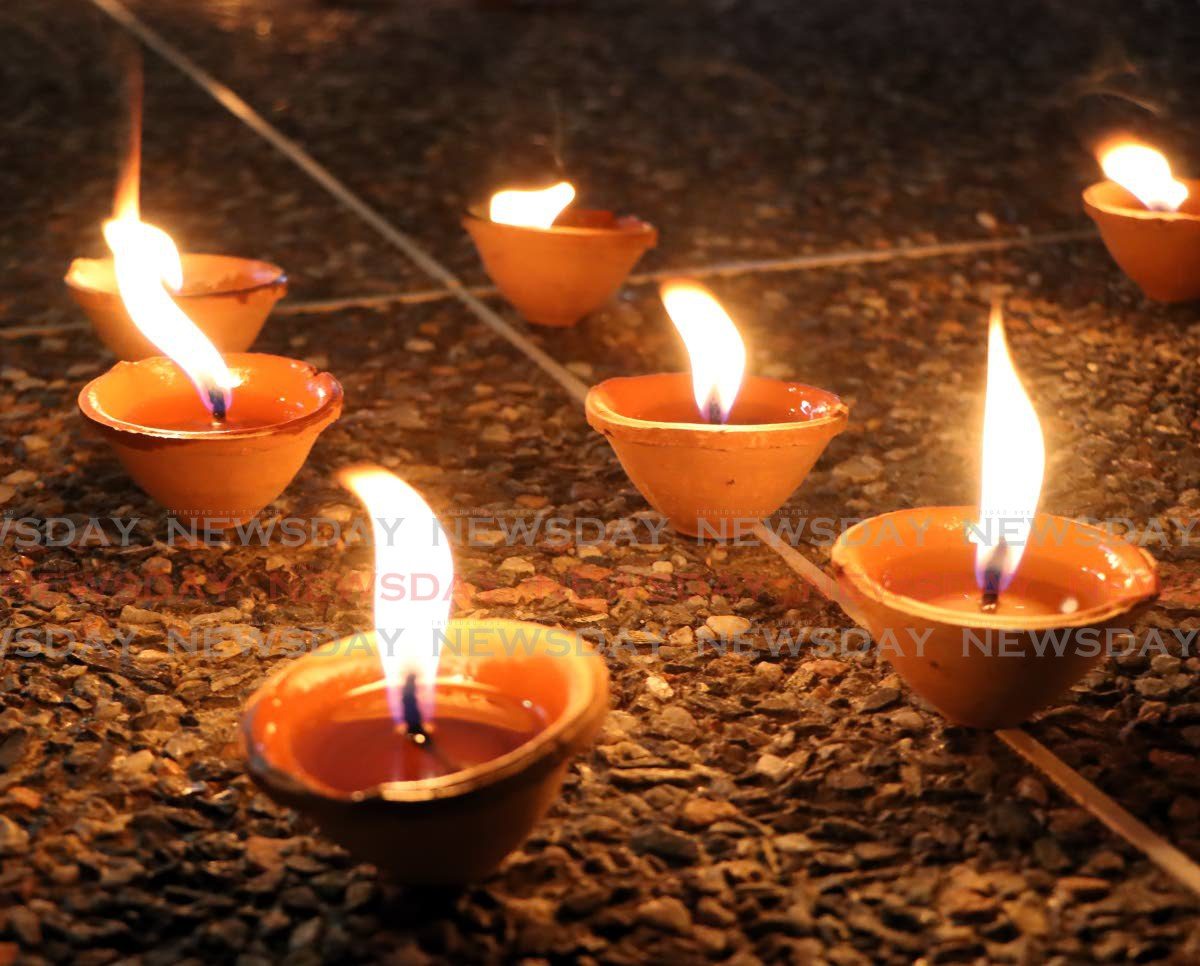The Presbyterian Board has sparked a debate by limiting religious observances in its schools to Christian celebrations. While the board’s policy aims to protect its religious identity by restricting non-Christian observances to educational purposes, critics argue that this approach should not encroach on regular school hours. The board’s stance, which emphasizes preventing the erosion of its religious beliefs and practices, has been met with mixed reactions. Iqubal Hydal, a concerned citizen, suggests that Presbyterian schools should remain open on non-Christian religious holidays, such as Divali, to educate students about diverse faiths. This, Hydal argues, would place the board on higher moral ground by fostering inclusivity and understanding. The discussion highlights the delicate balance between preserving institutional religious identity and promoting interfaith education in a multicultural society.
博客
-
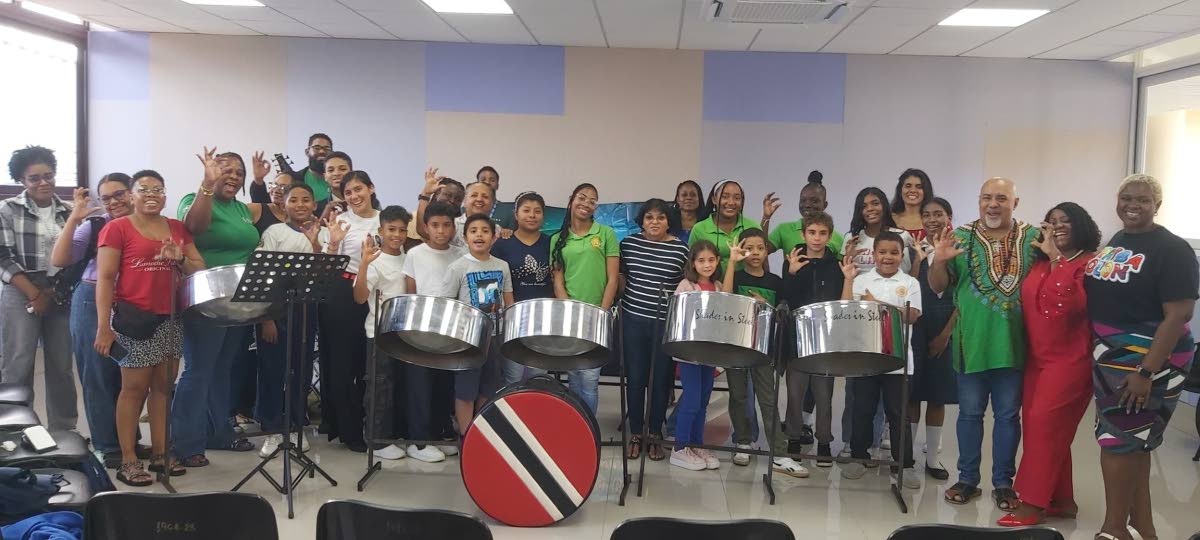
St Francois Girls’ College Orchestra leads cultural exchange in Panama
In a historic celebration of Caribbean culture, the St Francois Girls’ College Steelpan Orchestra has been invited to lead a series of steelpan workshops and performances in Panama, commemorating the country’s National Day of Calypso on October 17. This initiative, organized by the Center for Arts and Culture in Colón, aims to reconnect the province with its West Indian roots through the vibrant rhythms of steelpan music. The orchestra will conduct interactive workshops for secondary school students across Colón, culminating in a lively concert that honors the region’s rich musical heritage. This cultural exchange, facilitated by Afro-cultural activist Selvia Miller, Ernesto Polanco of the Institute of Art & Folklore, and Aleah Guitan of Trinitica International, underscores the deep historical ties between Panama and the Caribbean. Colón, home to descendants of Trinidadian, Jamaican, and Barbadian laborers who migrated during the Panama Canal construction, has long embraced calypso music. The introduction of steelpan aims to create a melodic bridge between generations and cultures, fostering a renewed sense of pride and memory for the Afro-Caribbean diaspora.
-
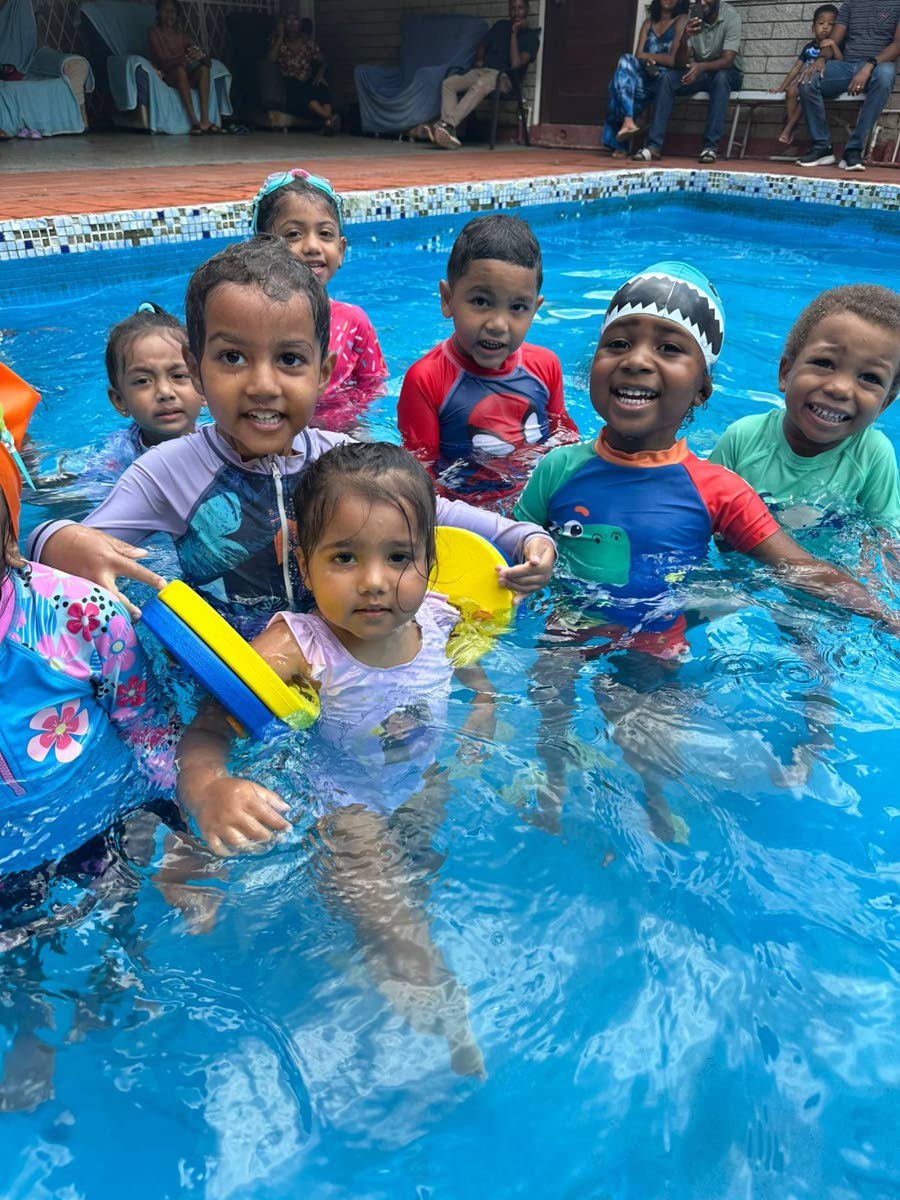
Water safety for all
Recent tragic drowning incidents in Trinidad and Tobago have underscored the critical need for enhanced water safety education. On October 2, 57-year-old Collin Trabulay drowned at Flower Pot Beach, Pointe-a-Pierre, following similar fatalities involving 22-year-old Andrew Curtis Clarke at Penzance Beach and 33-year-old Nigel Dudoon at Columbus Bay in August. These events have reignited calls for greater awareness and preparedness around water bodies. Neil A. Daniel, a seasoned swimming coach with over 34 years of experience and founder of Neil’s Swim School and Tsunami Swim Club, has dedicated his life to addressing this issue. Daniel emphasizes that water safety is not just about swimming skills but also about cultivating awareness and vigilance. He warns against complacency, urging individuals to observe their surroundings, avoid risky behaviors like diving into shallow water, and always swim in groups under supervision. Daniel also highlights the importance of securing open water sources at home, such as pools and tanks, to prevent accidents. He identifies four key signs of drowning distress: the wave, the climb, the stare, and the shout. Daniel advocates for formal swim instruction at any age, stressing that learning to swim is a process requiring time and practice. For those hesitant to start, he encourages taking the first step, regardless of age or fear. In emergencies, he recommends non-contact rescues using tools like sticks or ropes, cautioning against high-risk contact rescues. Daniel’s overarching message is clear: water safety is about respect, vigilance, and preparation to prevent tragedies.
-
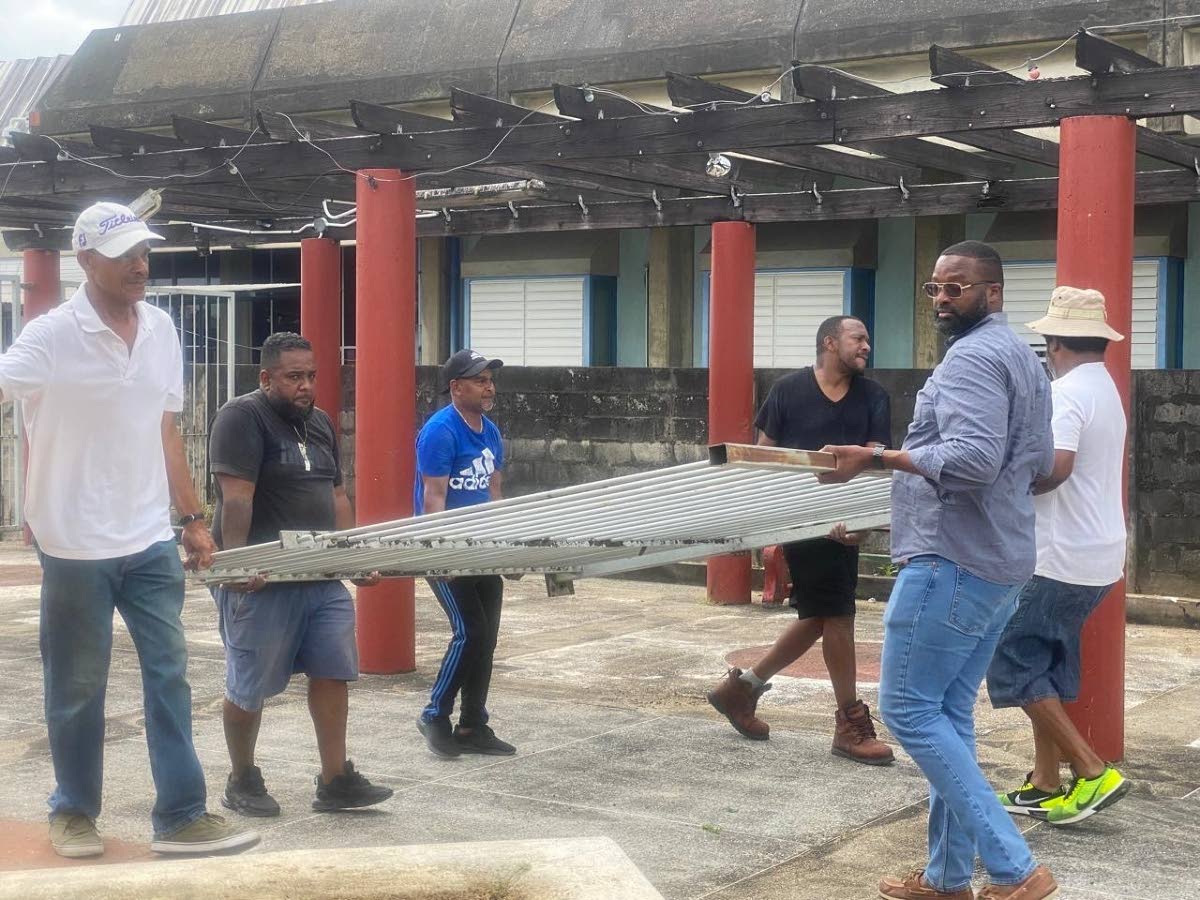
Cleanup at St James Park & Amphitheatre
The St James Park and Amphitheatre, a historic cultural hub in Trinidad and Tobago, is currently undergoing a significant restoration effort led by the St James Community Improvement Committee (CIC). Once a vibrant venue for events like WeBeat St James Live, the space had deteriorated over the years, becoming overgrown with vegetation, a refuge for the homeless, and a dumping site for waste. Under the leadership of President Maurice Simpson and Vice President Keron Moraldo, the CIC has initiated a comprehensive cleanup project to revive the area and restore its former glory. The first phase of the restoration involved removing the fence separating the park from the amphitheatre, which has been repositioned to the curb. Volunteers, including Port of Spain Mayor Chinua Alleyne, have joined the effort, using tools like weedwhackers and cutlasses to clear overgrown bushes. The committee aims to create a more aesthetically pleasing environment while fostering community pride and nostalgia. The CIC has also called for partnerships with corporate Trinidad and Tobago to support the ongoing restoration, refurbishment, and revitalization of the space. Originally part of a 1995 ‘master plan’ for tourist development by the then Tidco, the site was envisioned as a cultural corridor within the town center, with plans for improved infrastructure, landscaping, and amenities. The restoration project seeks to breathe new life into this vision, ensuring the park and amphitheatre remain a cherished community asset.
-
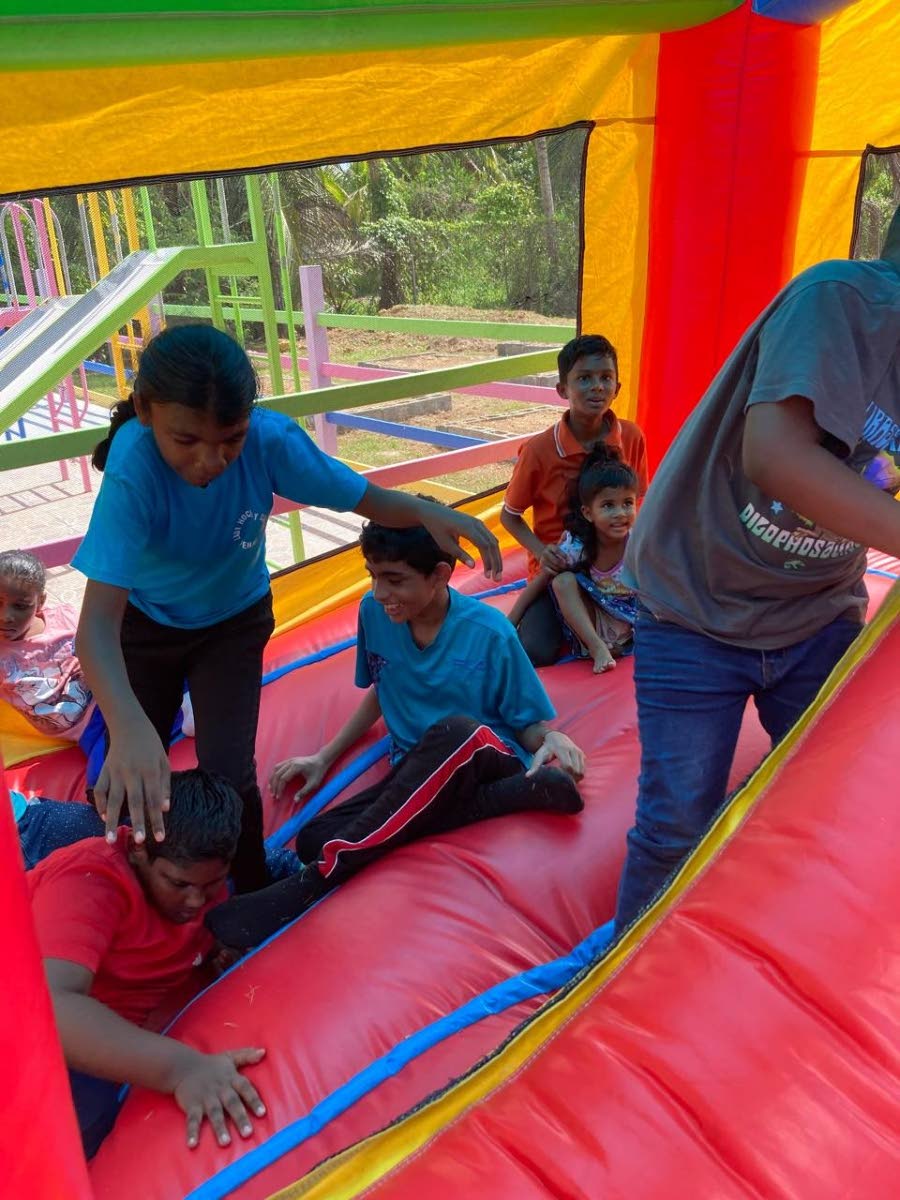
Rapidfire Kidz Foundation hosts Day of Fun
The Rapidfire Kidz Foundation (RKF) commemorated the first anniversary of the Roland I Khan/RKF Play Park at the Debe Hindu School with a vibrant Day of Fun on October 4. The event brought together children from diverse backgrounds, including those from the Lady Hochoy Special School (Penal), migrant children, and kids from the Islamic Home for Children (Gasparillo). RKF President Kevin Ratiram emphasized the foundation’s mission to create an inclusive environment for children facing significant challenges, fostering a culture of acceptance and joy. The celebration featured a variety of engaging activities, including a bouncy castle, novelty games like giant jenga and cornhole, and the beloved presence of Pizza Man, the mascot from Little Caesars Pizza, who delighted the children with his playful antics. RKF Vice-Chairman Johnny Quash highlighted the community’s generous support, including the donation of 25 pizzas by Little Caesars. The event’s overwhelming success has inspired plans to make it an annual tradition, furthering the foundation’s commitment to enriching the lives of children through play and inclusion.
-
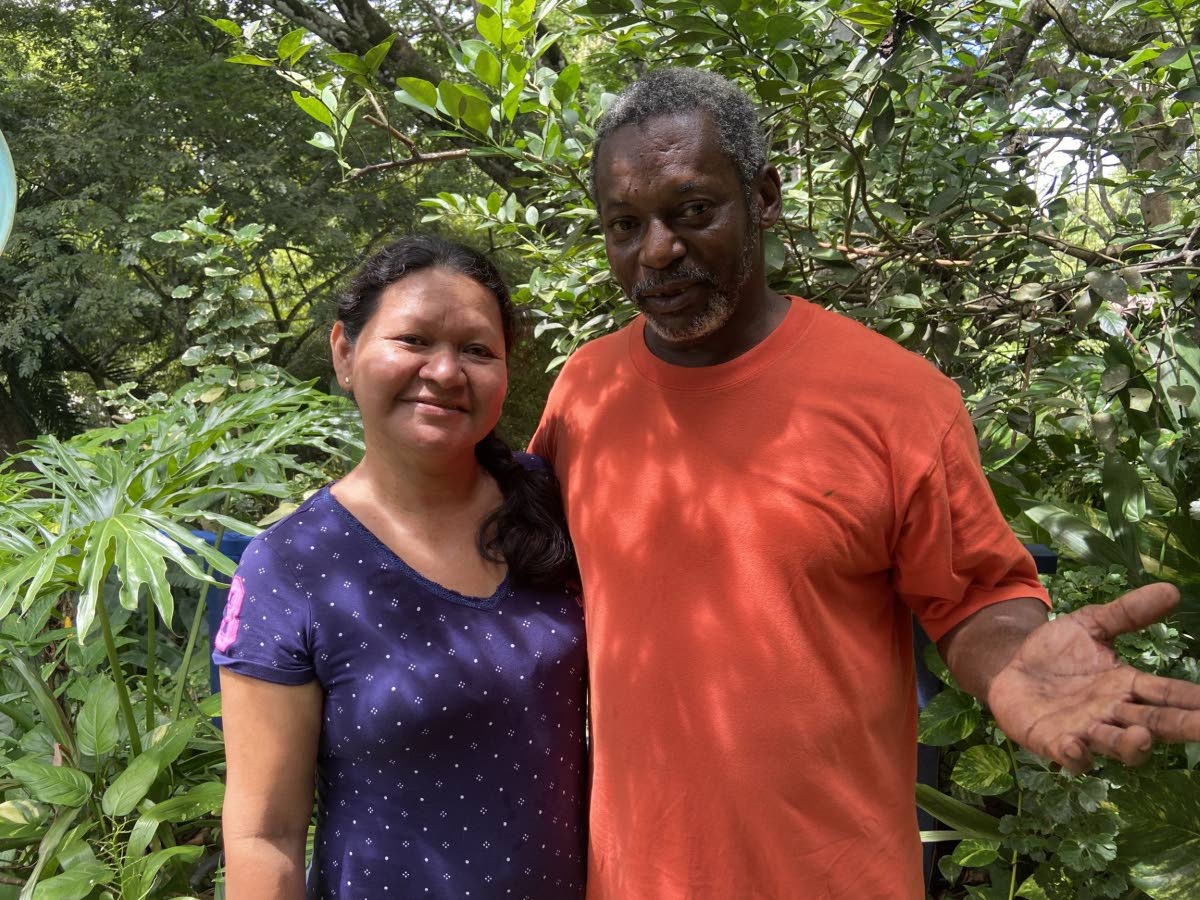
Tobago love
In the heart of Tobago’s lush landscapes lies Adventure Eco-Villas, a sanctuary for birds and wildlife, where Agnes and Anthan Solomon have woven a life of love, dedication, and harmony with nature. Their story is one of resilience, cultural fusion, and a shared passion for preserving the environment. Agnes, born in Mabaruma, Guyana, and raised in Georgetown, found her calling in Tobago after a serendipitous meeting with Anthan, a Tobagonian with a deep-rooted connection to the land. Together, they have transformed Adventure Eco-Villas into a haven for both wildlife and visitors, blending their unique backgrounds into a life of service and stewardship. Agnes’ journey from Guyana to Tobago, her reunion with her indigenous roots, and her eventual marriage to Anthan are testaments to the power of love and perseverance. Anthan, a jack-of-all-trades with a background in construction, landscaping, and hospitality, has dedicated his life to maintaining the beauty and functionality of the eco-retreat. Their shared commitment to the environment and each other has created a legacy that continues to inspire. As they guide visitors through the trails, Agnes and Anthan not only share the wonders of nature but also their remarkable story, a testament to the enduring power of love and the importance of caring for the land.
-

Dominican Republic closes Nalis’ Latin Night series
The National Library of Trinidad and Tobago (Nalis) in Port of Spain brought its annual Latin Night 2025 series to a vibrant close on October 13, with the Dominican Republic as the featured nation. The event, held at the Pamella Benson Audio Visual Room, celebrated cultural exchange through film, music, and cuisine, drawing diplomats, artists, students, and cultural enthusiasts. The evening’s highlight was the screening of the Dominican documentary *Hay un país en el mundo*, directed by José Enrique Pintor (Pinky Pintor), which explores the nation’s identity through landscapes, poetry, and music. The film’s title is inspired by a renowned poem by Pedro Mir, a literary icon of the Dominican Republic. Debbie Goodman, Nalis’ corporate communications manager, emphasized the program’s mission to foster regional unity and appreciation for shared cultural heritage. Dominican Republic Ambassador Raquel Jacobo Jaar praised the initiative, noting the symbolic value of the documentary in highlighting the deep historical and cultural ties between the two Caribbean nations. The event concluded with a reception featuring traditional Dominican food and drinks, prepared by the local Dominican community. The Latin Night 2025 series, running from October 1 to 13, showcased the cultures of Argentina, Brazil, Chile, Colombia, Cuba, Mexico, Panama, Peru, Spain, and the Dominican Republic through diverse performances, workshops, and exhibitions.
-
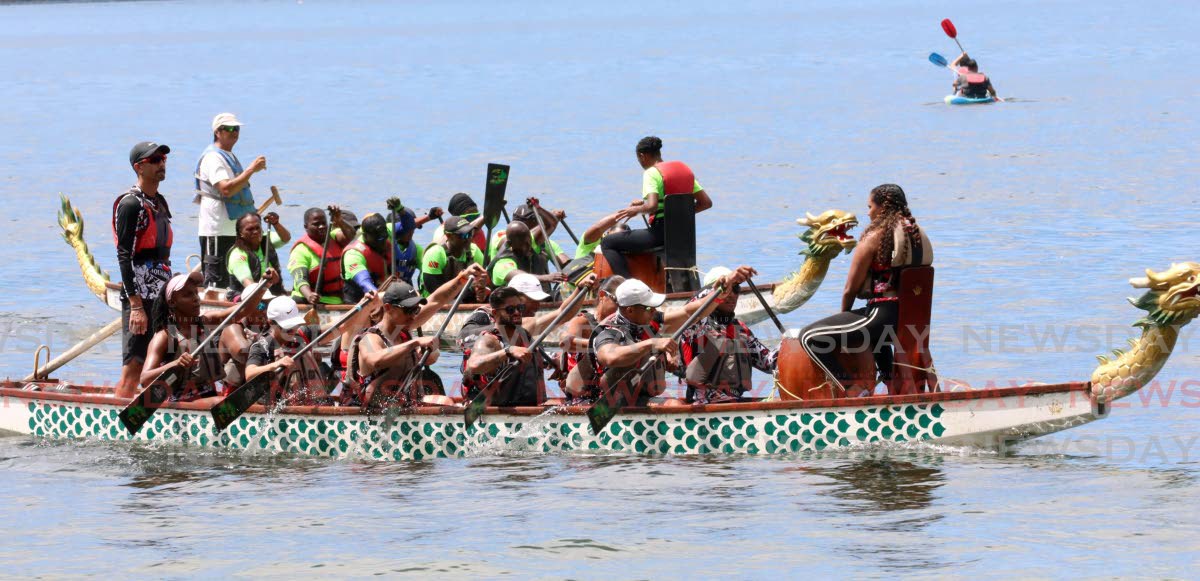
Aquaholics, Bluebloods make splash at Dragon Boat Festival
The Chinese Arrival Dragon Boat Festival, held at the Chaguaramas Boardwalk on October 11 and 12, witnessed thrilling performances from teams Aquaholics and Bluebloods. Over the two-day event, numerous races were conducted across various distances, including 200m, 500m, and 1,000m, alongside traditional dragon dances. Aquaholics showcased their prowess by securing victories in the premier open 200m, premier mixed 200m, and premier women’s 200m events. In the premier open race, they narrowly edged out Bluebloods with a time of 53.35 seconds, while Bluebloods clocked 55.57 seconds. Bluebloods, however, excelled in the Under-16 open standard race and the Under-16 200m small event. Both teams also triumphed in the 1,000m events. Aquaholics led the premium mixed race with a time of 7:01.04, while Bluebloods dominated the Under-21 open category, finishing in 6:00.48. Other notable winners included St Joseph’s Convent’s Blue Dragons in the Under-21 women’s race and Sea Serpents in the 500m Under-21 women’s event. The festival also featured an exhibition race for beginners and non-competitive athletes, where Chinese Exhibition emerged victorious.
-

From content to commerce
In the evolving landscape of modern business, attention has become the new currency. However, mere attention is no longer sufficient to sustain success. The year 2025 marks a pivotal shift where every scroll, like, and comment represents a micro-transaction in culture. Creators, once content with being digital celebrities, are now transforming into founders, curators, and architects of immersive, creator-led experiences. These businesses bring digital storytelling to life through cafes, tours, events, and tangible products, fostering a sense of belonging among consumers. The future of business lies at the intersection of content and community, where storytelling extends beyond the digital realm into real-world spaces that make people feel part of a narrative. This global phenomenon is not confined to major markets; it is also gaining momentum in the Caribbean. Creators like Jamel ‘Certified Sampson’ Sampson, Kyle Boss, and Gervail ‘Jr Lee’ Lee are turning digital influence into thriving physical businesses, from ice cream shops to comedy tours. The data underscores this trend, with Goldman Sachs projecting the global creator economy to reach US$480 billion by 2027. However, scaling this movement requires a supportive ecosystem, including stronger digital infrastructure, investment in innovation, and government recognition of creators as cultural exporters. As Caribbean entrepreneurs embrace this shift, the focus is on building creator-led experiences that will define the next decade of business. To aid this transition, digital strategist Keron Rose is hosting a workshop titled the Digital Revenue Roadmap, offering insights on monetizing digital presence and creating sustainable income ecosystems. The time has come for Caribbean entrepreneurs to move beyond products and craft experiences that resonate globally.
-
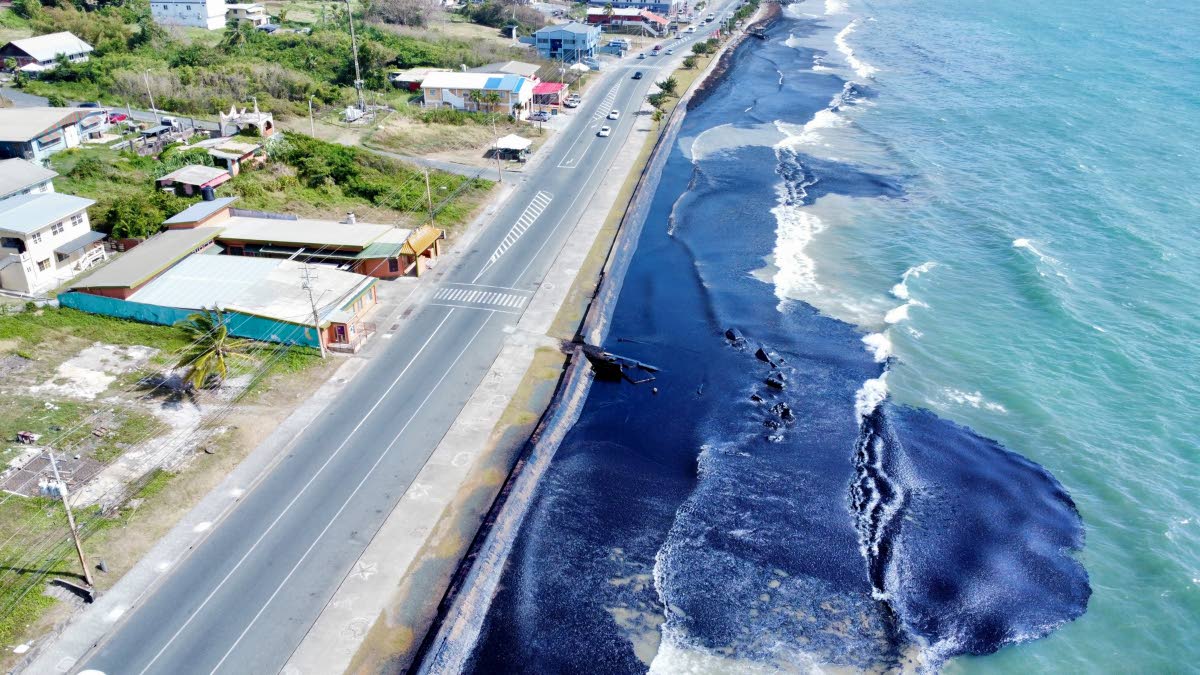
Strengthening industrial resilience
As Trinidad and Tobago (TT) marks the International Day for Disaster Risk Reduction on October 13, the nation confronts a pivotal juncture in safeguarding its industrial and energy sectors. These sectors, the backbone of TT’s economy, are grappling with aging infrastructure, climate vulnerabilities, and inadequate emergency response capabilities. While natural disasters like hurricanes and floods often dominate risk discussions, the threat of industrial disasters looms equally large. TT’s reliance on oil and gas—spanning upstream, midstream, and downstream operations—has left it exposed to systemic risks as critical assets, including pipelines, tanks, and flare systems, operate beyond their intended lifespans. Without sustained reinvestment, these once-cutting-edge systems have become national liabilities. Industrial emergencies, such as the 2013 oil spill and the 2024 barge disaster off Tobago’s coast, underscore the cascading impacts of such incidents, which disrupt livelihoods, ecosystems, and economic stability. The region’s history of pipeline failures, chemical spills, and oil leaks highlights the urgent need for robust emergency preparedness. However, TT faces significant gaps in both equipment and responder competency. Outdated fire suppression systems, gas detectors, and spill containment gear, coupled with insufficient training, hinder effective crisis management. To address these challenges, TT must elevate its standards, ensuring that emergency responders meet internationally recognized benchmarks. Certifications aligned with global best practices, modern technologies, and methodologies are essential to fostering credibility, confidence, and international collaboration. Industrial resilience is not merely a technical necessity but a strategic imperative for sustaining foreign investment, infrastructure development, and economic diversification. As climate change amplifies the risk of natural disasters triggering industrial failures, TT must prioritize a culture of competence, transparency, and accountability. The nation’s ability to thrive in a new energy era hinges on its capacity to manage industrial risks effectively. Investments in training, certification, and equipment are investments in resilience, safeguarding people, communities, and economic continuity. TT stands at a crossroads: it can either react to disasters or build a system capable of preventing them. The choice will shape the nation’s safety, reputation, and prosperity for generations to come.
